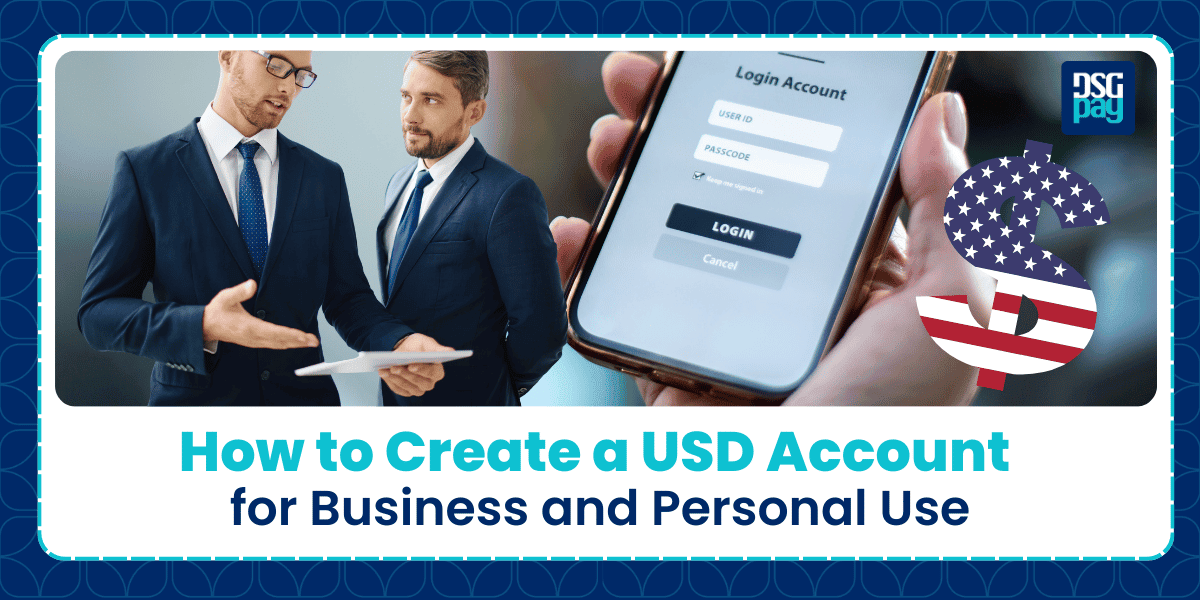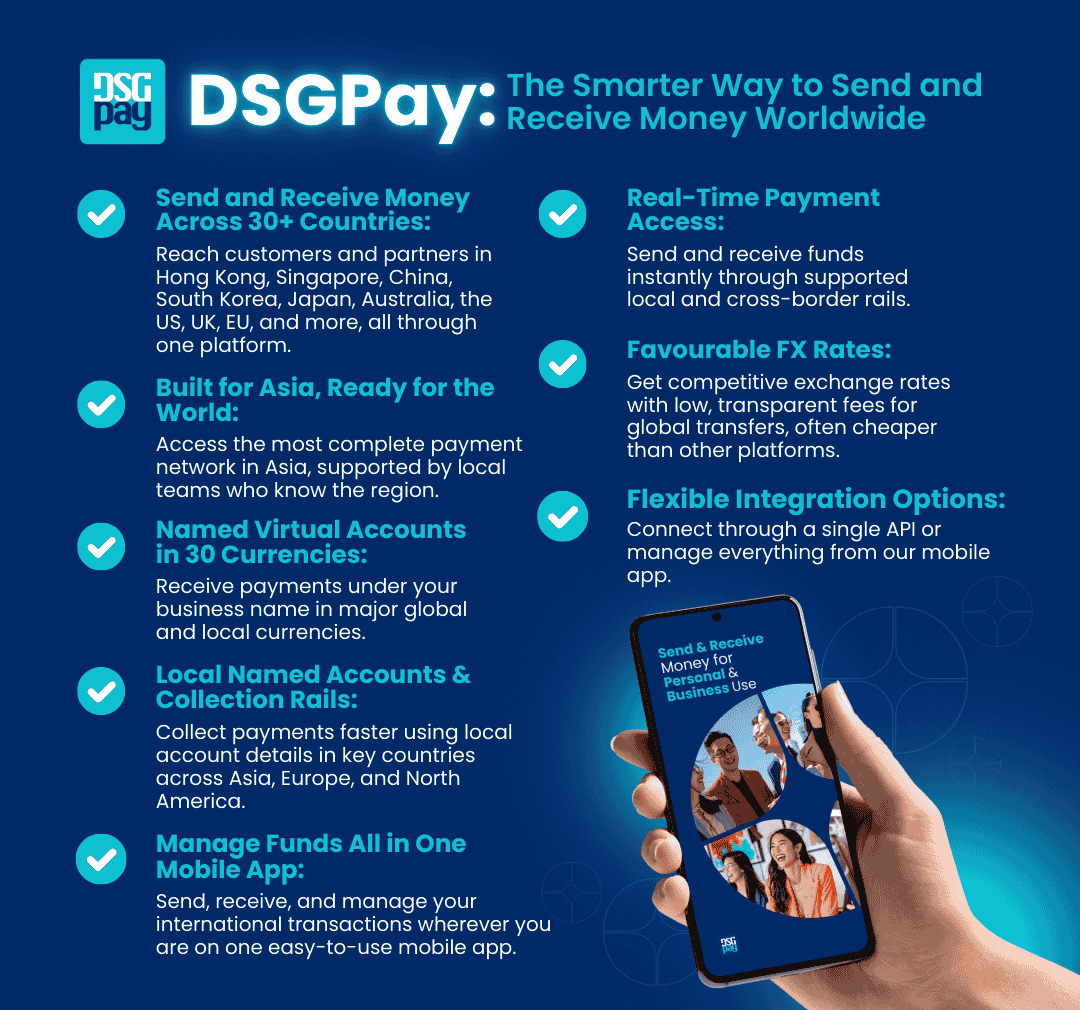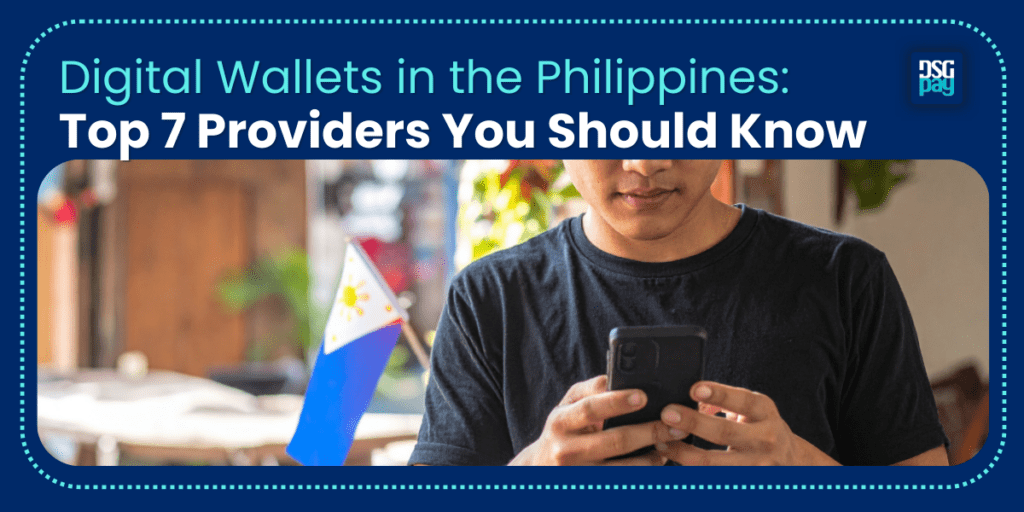If you freelance or run a business, you have probably heard the advice: “Get paid in dollars, it’s safer.” As of 2024, the US dollar still makes up about 58% of global foreign exchange reserves, which explains why it is the go-to currency for trade, savings, and cross-border payments.
When you search for how to create a USD account, two main options appear. One is through traditional banks with paperwork and compliance checks. The other is via digital platforms that let you set up an account in minutes. Both are valid, but each comes with trade-offs.
This article will break down both options, outline the steps for personal and business use, and help you choose the right approach.
Table of Contents
Key Takeaways:
- You can open a USD account through either a bank or a global financial platform.
- Banks offer stability and credibility, but usually involve higher fees and more paperwork.
- Global financial platforms provide faster, cheaper access, but may come with transaction limits.
- Personal and business accounts have different requirements, so prepare the right documents.
- Always check local rules, compare fees, and keep personal and business money separate.
Quick Comparison: How to Create a USD Account
Before choosing between a bank or a digital finance platform, here’s a quick look at how they compare side by side.
| Feature | Banks | Fintech Platforms |
| Requirements | Personal: Passport, proof of address, tax details. Business: Registration documents, tax ID, IDs of directors. |
Personal: Passport, proof of address, tax details. Business: Registration documents, tax ID, and IDs of directors. |
| Fees & Minimum Balance | – Higher. – Initial deposit is often USD 100–500 or more. – Monthly maintenance fees are common. |
– Lower. – Usually no minimum deposit. – Low or no monthly fees. |
| Extra Services | Loans, credit cards, investment services, in-person support. | Multi-currency wallets, marketplace integration, fast online transfers. |
| Transaction Limits | – High transaction thresholds. – Suitable for corporate and large-scale payments. |
– May limit huge transfers or cash deposits. – Better for small to medium payments. |
| Setup Time | – Slower. – Can take days or weeks. – Often requires a branch visit. |
– Faster. – Accounts are often ready within hours or a few days. – No branch visits required. |
Opening a USD Account Through Banks
Before diving into the newer digital options, it makes sense to begin with the traditional route. Banks have been the backbone of currency accounts for decades, and for many people, they remain the first stop when figuring out how to create a USD account.
Why Choose a Bank?
Traditional banks are still the first choice for many because of one word: stability. If you want the peace of mind that comes with a regulated, bricks-and-mortar institution, a bank is hard to beat. You can walk into a branch, speak to a manager, and know your funds are backed by decades of reputation.
Banks also make sense if you are dealing with larger transactions. Some fintech providers place limits on how much you can move in a single transfer. Banks, on the other hand, are built to handle corporate payments, export earnings, or long-term savings in foreign currency.
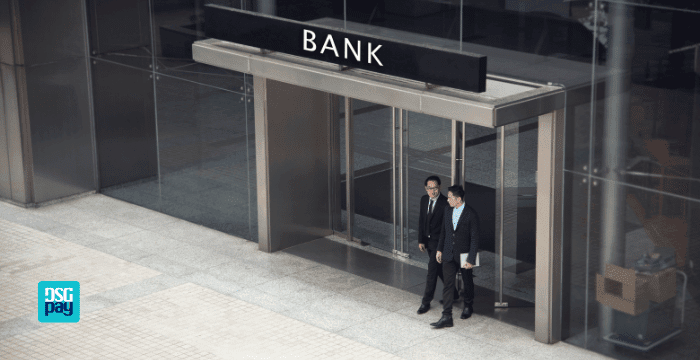
Steps to Open a Personal USD Account at a Bank
- Research your options: Start by identifying which banks in your country offer foreign currency accounts. Global names like HSBC, Standard Chartered, and Citi usually provide USD accounts. Many local banks also have this option, but the features vary.
- Check the requirements: Call the bank to confirm what documents are needed. Most banks will ask for:
- Valid passport: Your main form of identification.
- Secondary ID: Such as a foreign driver’s licence or a major credit card.
- Proof of addresses: Evidence of both your US address (if you have one) and your permanent foreign address.
- Tax details: Either an SSN, ITIN, or IRS Form W-8 BEN to declare non-US taxpayer status.
- Visa or immigration papers: Proof of your legal status in the US.
- An initial deposit: Often between $100 and $500 (varies by bank)
- Apply online or in person: Some banks allow you to start the process online, but in most cases, you will need to visit a branch to complete the paperwork.
- Make the initial deposit: Your account is not active until you put in the minimum balance.
- Collect your account details: Once approved, you will receive a USD account number and sometimes a debit card that can be used internationally.
Steps to Open a Business USD Account at a Bank
Opening a corporate account takes more work because the bank needs to verify your business.
- Register your company: You will need to have your business legally set up, whether as a sole proprietorship, LLC, or corporation.
- Gather your paperwork: Collect all required documents in advance so you don’t face delays during the application process.
- Certificate of incorporation or business registration
- Tax identification number for the company
- Articles of association or partnership deed
- IDs of directors or owners
- A board resolution approving the account (for corporations)
- Choose your bank: Some banks are friendlier to small businesses than others. International banks often require higher balances. Local banks may be more flexible.
- Submit your application: Be prepared for a compliance check. Banks need to satisfy Know Your Customer (KYC) and Anti Money Laundering (AML) regulations, so they will ask questions about your business activities.
- Deposit funds and activate: Once the bank approves, you can deposit money and begin using the account to receive client payments, pay suppliers, or manage payroll in USD.
Pros and Cons of Bank USD Accounts
Before you decide if a bank is the right fit, it helps to look at the upsides and downsides side by side:
| Pros | Cons |
| Trusted and recognised worldwide | Longer approval times |
| Can handle large payments easily | Higher fees and charges |
| Access to extra services (loans, credit cards) | Often need high minimum balances |
| In-person support at branches | Less flexible for freelancers or small businesses |
Who a Bank USD Account is Best For
Not everyone needs the formality of a bank. But in these situations, it makes sense:
- Running payroll abroad: If you pay staff or contractors in USD, banks handle the scale better.
- Applying for loans or credit: A bank relationship can open doors to financing that digital providers do not offer.
- Regulated industries: Law firms, healthcare providers, or financial services often need the compliance standards that only banks meet.
- Planning for the long haul: If your goal is to build credit history, qualify for mortgages, or maintain wealth in USD, a bank account carries weight.
Opening a USD Account Through Fintech Platforms
When time and convenience matter most, fintech platforms can deliver a USD account faster and with fewer challenges than banks.
Why Choose a Fintech Platform?
Banks may offer stability, but they can feel slow and restrictive. Fintech platforms have transformed how individuals and businesses open and manage USD accounts.
You can sign up online, verify your identity, and within hours receive a USD account number to share with clients.
For freelancers, start-ups, and e-commerce sellers, this shift is a game-changer. Fees are typically lower, and the ability to manage multiple currencies from one app makes them far more convenient than juggling several bank accounts.

Steps to Open a Personal USD Account with a Fintech Platform
- Register online: Sign up through the website or app of your chosen platform (e.g. Wise, Payoneer, Revolut, PayPal).
- Enter details: Add your email, country of residence, and create a secure password.
- Verify identity: Upload a valid ID and proof of address when prompted.
- Open a USD balance: Once approved, you can create a USD balance. You’ll then receive account and routing details, similar to a US bank account, to start sending and receiving money.
Steps to Open a Business USD Account with a Fintech Platform
- Sign up online: Register for a business account on your chosen provider’s website or app.
- Provide business details: Submit company information, ownership details, and registration documents.
- Verify identity: Upload IDs and proof of address for directors, shareholders, and the business.
- Get account details: Once approved, you’ll receive your USD account and routing numbers. Add funds, manage multiple currencies, and begin paying suppliers or receiving client payments at lower fees than banks.
Pros and Cons of Fintech Platforms USD Accounts
Online money transfer platforms make life easier in many ways, but they also come with limitations. Weighing up both sides will help you see if they match your personal or business goals:
| Pros | Cons |
| Quick and fully online setup | No physical branches for in-person support |
| Lower transaction and maintenance fees | Limits on cash deposits or very large transfers |
| Designed for freelancers, start-ups, and e-commerce | May face restrictions in certain countries |
| Multi-currency support in a single app | Not as globally recognised as banks |
Who is a Global Fintech Platform USD Account Best For
Not everyone needs the stability of a bank. In these cases, a global financial platform can be the smarter choice:
- Freelancers and consultants: Quick setup makes it easy to start receiving USD from overseas clients without waiting weeks for approval.
- Start-ups and small businesses: Lower fees and multi-currency wallets help manage tight budgets while scaling internationally.
- E-commerce sellers: Platforms like Amazon, Shopify, or eBay integrate smoothly with global accounts for fast collections.
- Digital nomads: Manage funds from anywhere in the world using just a mobile app, with no need for branch visits.
Tips Before You Open a USD Account
Before you rush to open a USD account, keep these practical tips in mind to avoid delays, hidden costs, and compliance issues.
- Check local rules: Some countries restrict foreign currency accounts or require reporting once balances exceed certain thresholds. Always confirm the regulations in your country before applying.
- Compare all fees, not just one: Look closely at transfer charges, exchange rate margins, and monthly maintenance costs. Even small percentages can add up quickly.
- Separate personal and business money: Mixing the two can create tax and accounting headaches. Keep them in dedicated accounts for clarity and compliance.
- Use a hybrid approach: Many people combine both options. An online money platform works well for speed and low fees, while a traditional bank provides stability and handles high-value transactions.
Conclusion: Start with One, Then Scale
The demand for USD accounts is not slowing down. Whether you are freelancing from your laptop, running a growing business, managing a corporation, or simply want to save in a strong currency, opening a USD account gives you greater control over your finances.
If you value stability and are comfortable with paperwork, go with a bank. If you need speed, low fees, and global access, fintech is your friend. And if you want the best of both worlds, nothing stops you from using both.
The important thing is to take action. Start with one option today. Once you have your USD account, you will never look back at juggling exchange rates and unnecessary fees.
Open Your USD Account Easily with DSGPay
If you are considering how to create a USD account, DSGPay offers a modern solution built for both individuals and businesses. It combines the security of a regulated provider with the flexibility of digital finance, making cross-border payments faster and easier.
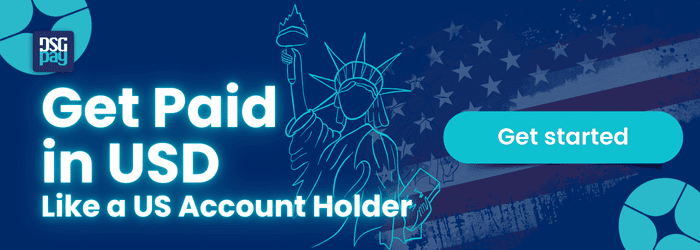
With DSGPay, you get:
- Open USD Accounts in Your Name: DSGPay provides USD virtual accounts in your personal or company name, so payments look professional and build trust with clients.
- No US Bank Account Needed: Pay beneficiary in the US directly without setting up a bank account.
- Multi-currency Support: Hold, send, and receive funds over 30 currencies, including USD, EUR, GBP, and more, all from one account.
- Local & Global Payments: Transfer money seamlessly through local payment rails or international networks.
- Competitive FX Rates & Lower Fees: Convert currencies instantly with transparent rates and avoid inflated markups.
- Licensed and Trusted: Regulated in Hong Kong and supported by global partners, DSGPay processes thousands of safe, compliant transactions every day.
How DSGPay Benefits You
- For individuals and freelancers: Receive USD from overseas clients, manage multiple currencies with ease, and reduce conversion costs.
- For businesses and start-ups: Assign accounts by client or project for easier tracking, integrate with platforms like e-commerce marketplaces, and expand into new regions without needing multiple bank accounts.
Get started with DSGPay today and unlock smarter global payments.
